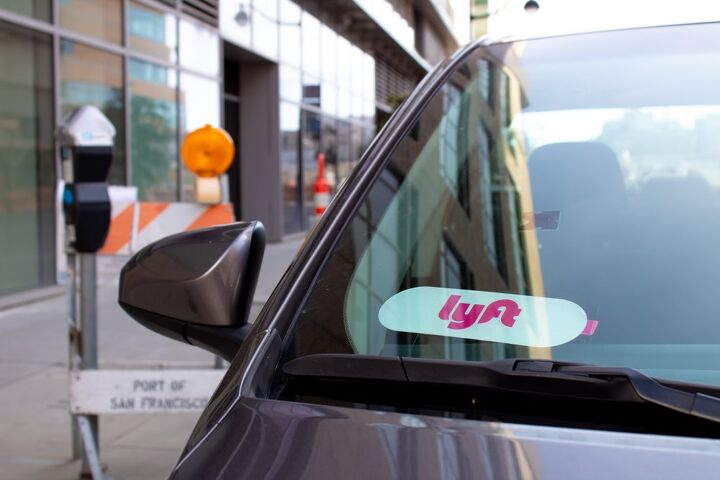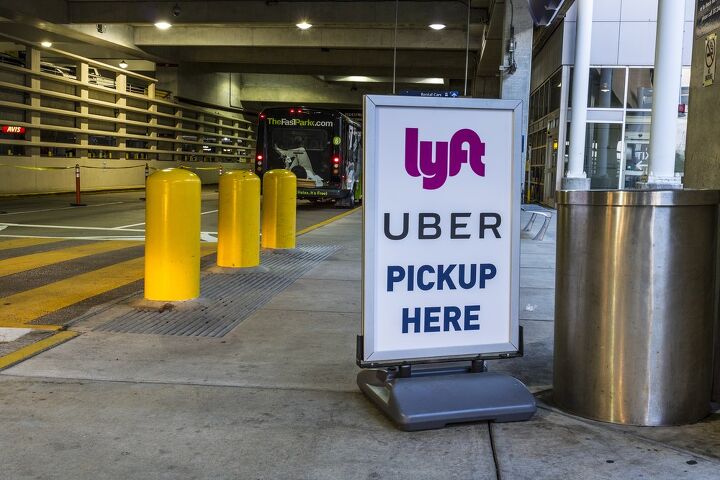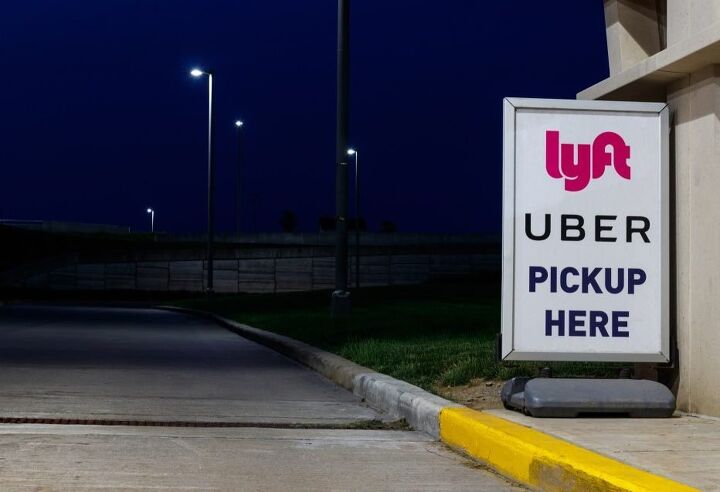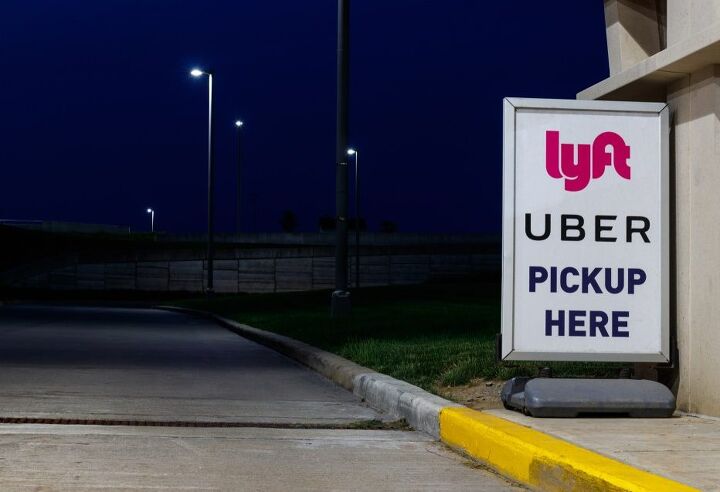#lyft
Lyft Adding Roadside Assistance for Regular Cars
Despite its status as a ride-hailing application, Lyft is branching out into the world of roadside assistance. This is an interesting direction for the company to take when its core audience is likely to be people who tend not to drive all that often. But a potentially useful service if you’re not already a AAA member or have a particularly stalwart friend with some automotive know-how.
Rising Fuel Prices Have Upended the Economy
Unless you’ve spent the last twelve months locked inside your home, then you’re probably dreading the next trip to the gas station. The average price for a gallon of 87 octanes has reached $3.40 in the United States. That’s about 50 percent steeper than it was at the start of 2021 and undoubtedly more than you’re wanting to shell out today. Though one cannot ignore the dizzying rates being advertised outside of British “petroleum parlors” or France’s many “un bordel pour voitures.” Canadians are also forced to endure higher gasoline prices, as the government tends to stack the taxes a little higher and the U.S. dollar tends to be more valuable. At least for now.
All you need to know for the purposes of this article is that fuel prices are up and it’s influencing the economy in some pretty dramatic ways.
Uber Finally Makes a Profit, But Not Really
On Thursday, Uber Technologies reported its first profitable quarter since the company launched in San Francisco way back in 2009. This represents a huge achievement for the company, which has been investing heavily to expand the business in the hopes that it will eventually become the world’s favored ride-hailing, courier, and food-delivery service.
But here’s the rub. Uber is technically only profitable on an adjusted basis that takes a pretty narrow view of its finances. Despite this, it’s still a step in the right direction and may foreshadow the reliable earnings the company has been seeking for ages.
Lyft Will Now Pay for Your Tinder Date's Ride
Dating is hard, but ride-sharing company Lyft is trying to make it a little easier.
It will now allow you to pay for your Tinder date’s ride.
Captain Obvious Returns: Studies Say Ride-Hailing Apps Cause Pollution
As luck would have it, hiring thousands of drivers to cruise around a city in search of their next fare has some negative environmental impacts. That’s the word coming from expert researchers at Carnegie Mellon University, who we can only hope are prepared to tackle similarly impossible quandaries — like establishing what happens to an object when it’s dropped or reaching a final determination on the wetness of water.
The study is inextricably linked to one we covered in 2018 asserting that ride-hailing services actually created more traffic congestion because it treads extremely familiar ground and seems like something that we should have already figured out on our own. But it’s also at odds with the years of messaging we’ve gotten from technology firms that have promised on-demand services (like Uber or Lyft) would usher in a new era of urban transportation striving for clearer roads and cleaner air. Based on little more than the conjecture of executives, we’ve generally accepted ride-hailing as “greener” than the alternatives and it’s well past time that we started actually thinking about it.
Do You Think Uber and Lyft Will Ever Be Profitable?
While the tech industry does have firms pushing useful applications and products, it’s quite possibly the most disingenuous business sector of the modern age. Companies selling literally nothing more than false promises routinely see multi-billion-dollar valuations. The necessary hardware is always just “years away” and sold to investors who haven’t realized it was never real in the first place. A significant portion of the industry is also little more than reorganizing payment structures or access to services for the sake of convivence, making sure you’re locked into a plan that keeps your financial and personal details perpetually on file. But sometimes this actually results in worthwhile solutions which may (or may not) be capable of turning a legitimate profit.
Ride-hailing firms are probably one of the earliest and best examples of all the above. Uber and Lyft both lost a lot of money in 2020 but both remain convinced that profitability is just over the next hill. But there are plenty of obstacles littering the incline.
Toyota Subsidiary Woven Acquires Lyft Autonomous Division
Toyota’s Woven Planet Holdings has acquired Level 5, Lyft’s self-driving unit. Woven Planet’s deal brings scientists, software engineers, and researchers together as one.
Canadians Using Cabs to Avoid Quarantine Restrictions
With Ontario embracing some of the strictest lockdown restrictions in the West and giving the police force carte blanche when it comes to enforcing public health, many Canadians have told us they’re not exactly enthralled with the idea of notifying their government that they’ve been out of the country. This is doubly true if they’ve just flown in by plane because the nation now requires a few days’ stay in a hotel as part of its mandatory 14-day quarantine for those traveling by air.
Due to the added time, cost, and general hassle of booking yourself into a hotel for 3 nights — awaiting the results of a mandatory COVID test before you’re technically allowed to go home to continue self-isolation — some travelers have opted to utilize ground transportation for the explicit purpose of avoiding restrictions. Rather than flying all the way into the Great White North, Canadians are flying into neighboring American airports and then hailing a taxi that will take them across the border.
U.S. Government Awards Huge Transportation Contract to Uber, Lyft
The General Services Administration (GSA), responsible for managing services for federal agencies, issued a five-year federal contract to Uber and Lyft. Confirmed by Veronica Juarez, Lyft’s vice president of social enterprise and government, on Monday, the deal estimated to be worth somewhere in the neighborhood of $810 million and allows the ride-hailing firms to offer public agencies a direct line to their transportation services.
While federal employees have always been able to utilize the services, the new arrangement makes them semi-compulsory for some of the millions of government employees involved. Meanwhile, Uber and Lyft can now work directly with officials to promote their services. With the recent passing of California’s Prop 22, which issued special legal protections to ride-hailing companies, the duo seemed to be experiencing a run of good fortune late in the year. That doesn’t guarantee that they’ll suddenly become profitable entities. But they could be with sufficient government support — which seems increasingly likely for reasons we’re about to dive into.
Uber, Lyft Win in California: Drivers to Remain Contractors
Uber and Lyft stocks saw a bump this week after California passed a ballot measure that will exempt them (and similar businesses) from a state law requiring contracted drivers to be reclassified as employees.
App-based work platforms bent over backward and expended millions to ensure Proposition 22 passed in November, with many suggesting it was the only way to continue operations in the state. It seems those efforts weren’t for nothing. With over 80 percent of votes counted this morning, the California Secretary of State’s Office announced that 58 percent of voters supported the measure with 42 percent against. Ride-hailing platforms will be legally exempt from California’s Assembly Bill 5 and drivers will remain contracted employees.
California Rules Uber/Lyft Must Reclassify Drivers
A California appeals court unanimously ruled against ride-hailing giants Uber and Lyft on Thursday, mandating that they would indeed need to reclassify drivers operating within the state as employees.
The duo have been pushing against Assembly Bill 5, which seeks to reclassify contracted, gig-economy workers as fully fledged employees entitled to all the associated benefits, all year. California even sued Uber and Lyft in May for refusing to comply with with the order but they’ve claimed AB5 will severely hinder (if not eliminate) their ability to operate within the state and have backed a measure called Proposition 22 that would grant them special exceptions.
Uber, Lyft Spending Big to Fight Californian Gig Economy Laws
California Blinks: Uber/Lyft Granted Extension on New Labor Laws
The battle between the purveyors of ride-hailing apps and the State of California has been an interesting one. The West Coast’s gig economy looked ready to be nuked from orbit following the passing of Assembly Bill 5 (AB5), leaving a glassy crater of jobless part-timers and the corporations that were dependent upon them — even though the stated goal of the rule was to protect gig workers from being taken advantage of.
Uber and Lyft looked to be the most impacted by the new law, as their entire business structure revolves around managing fares for drivers whose status as “independent contractors” was up for debate.
Claiming that hiring drivers as full-fledged employees would make the existing business model untenable, Uber and Lyft suggested they were looking into alternative solutions while fighting legal battles that would effectively make them exempt from the new law. San Francisco Superior Court Judge Ethan P. Schulman threw cold water on that concept when he ruled against the duo, saying drivers were essential to ride-hailing operations and needed to be treated as regular employees receiving the full benefits they’re entitled to.
The corporations’ last hope was double down on threat to leave the state and hope a California appeals court would grant them an extension to stage another legal fight, or just comply with AB5… which is exactly what happened on Thursday afternoon.
Lyft Abandons Operations in California Following Court Decision
As Uber contemplates ways to avoid having to close up shop in California following the passing Assembly Bill 5, Lyft is simply suspending operations as it waits to see how the appeals process works out.
On Thursday, the fuchsia-themed ride-hailing firm said it would not be able to maintain business as usual in the Golden State, citing several of the reasons we prognosticated in yesterday’s article about Uber mulling a franchise model. Included in the release was an inability to hire enough drivers in a manner that would appease the new law, resulting in reduced service (especially in suburban and rural areas), and a pricing increase deemed unfeasible for existing customers if implemented.
Uber Considers Franchise Model After California Cracks Down on Contractors
California took on the gig economy by passing updated labor laws (Assembly Bill 5) mandating companies treat contractors more like regular employees. Some predicted this would be the death knell for ride-hailing firms like Uber and Lyft, who are entirely dependent on them for their daily operations. Worse still, these companies remain unprofitable despite most of the the physical expenses being pushed onto drivers — who remain responsible for the upkeep of their own vehicles after receiving their cut of the fare.
Earlier this month, Uber CEO Dara Khosrowshahi published an op-ed in The New York Times suggesting contractors deserved better, but current circumstances dictated that the situation remain largely unchanged. He later suggested the service might have to leave California as it restructured its business model to appease new rules, saying it had to reclassify drivers as employees with all the accompanying benefits (paid leave, minimum wage, unemployment insurance, etc). San Francisco Superior Court Judge Ethan P. Schulman said that would be fine last week when he ruled that Uber and Lyft drivers were essential to operations and could not be treated as tangential to the business. He wanted to be absolutely clear that exemptions would not be made for ride-hailing firms, stating that it was “high time that they face up to their responsibilities to their workers and to the public.”
Uber lost $8.5 billion in 2019, making it difficult to envision a future where it can begin offering more to its drivers. But it also doesn’t want to lose out on market share as the industry jockeys for position. There needs to be another solution.
What about moving to a franchise model?


























Recent Comments